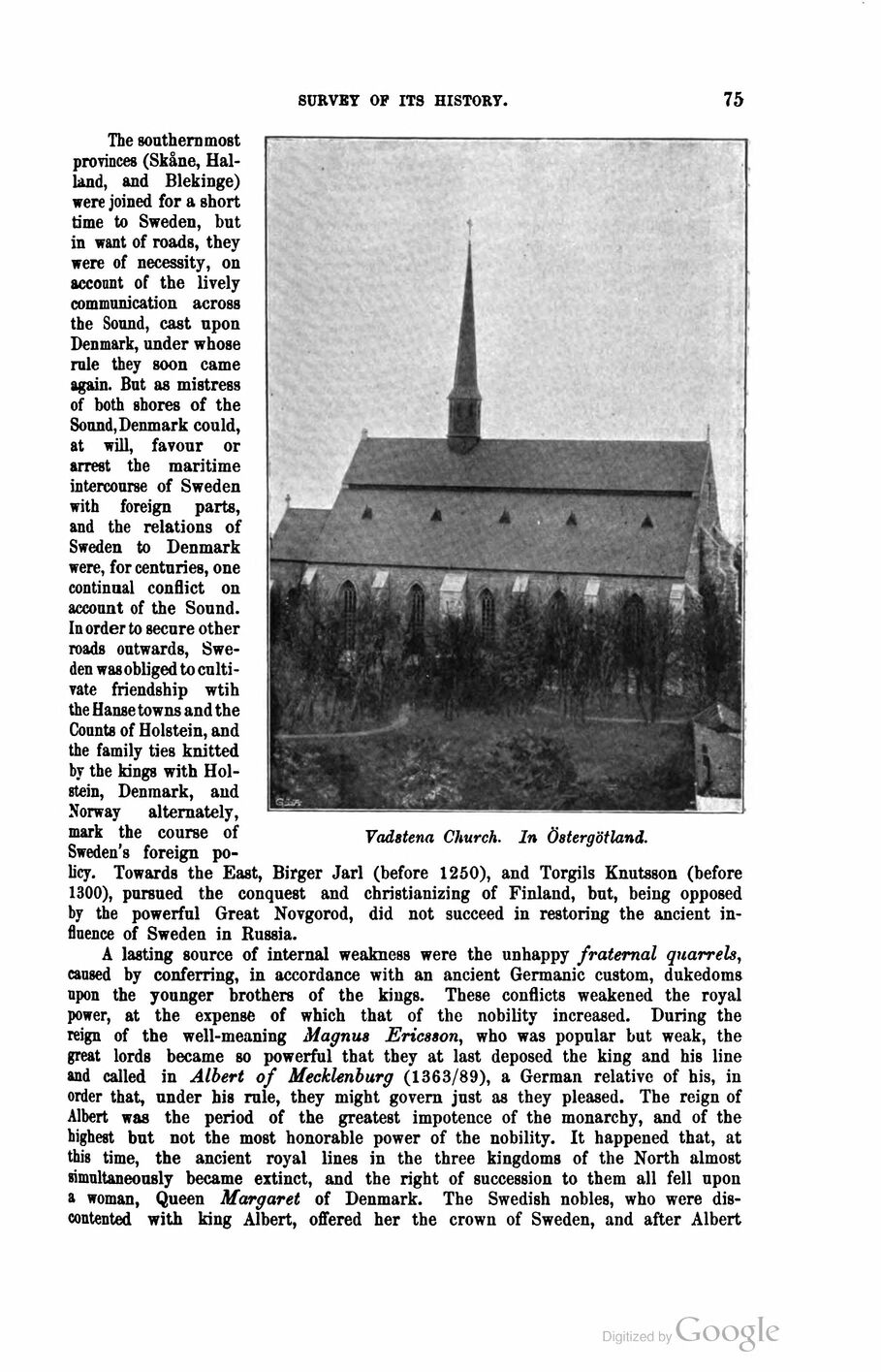
Full resolution (JPEG) - On this page / på denna sida - First part - II. The Swedish People - 1. Survey of its History. By E. Svensén, Author, Stockholm - The Catholic Period (1060/1523)

<< prev. page << föreg. sida << >> nästa sida >> next page >>
Below is the raw OCR text
from the above scanned image.
Do you see an error? Proofread the page now!
Här nedan syns maskintolkade texten från faksimilbilden ovan.
Ser du något fel? Korrekturläs sidan nu!
This page has never been proofread. / Denna sida har aldrig korrekturlästs.
SURVEY OF ITS HISTORY.
75
The southernmost
provinces (Skåne,
Hal-land, and Blekinge)
were joined for a short
time to Sweden, but
in want of roads, they
were of necessity, on
account of the lively
communication across
the Sound, cast upon
Denmark, under whose
rule they soon came
again. But as mistress
of both shores of the
Sound, Denmark could,
at will, favour or
arrest the maritime
intercourse of Sweden
with foreign parts,
and the relations of
Sweden to Denmark
were, for centuries, one
continual conflict on
account of the Sound.
In order to secure other
roads outwards,
Sweden was obliged to
cultivate friendship wtih
the Hanse towns and the
Counts of Holstein, and
the family ties knitted
by the kings with
Hoi-stein, Denmark, and
Norway alternately,
mark the course of
Sweden’s foreign
policy. Towards the East, Birger Jarl (before 1250), and Torgils Knutsson (before
1300), pursued the conquest and christianizing of Finland, but, being opposed
by the powerful Great Novgorod, did not succeed in restoring the ancient
influence of Sweden in Russia.
A lasting source of internal weakness were the unhappy fraternal quarrels,
caused by conferring, in accordance with an ancient Germanic custom, dukedoms
upon the younger brothers of the kings. These conflicts weakened the royal
power, at the expense of which that of the nobility increased. During the
reign of the well-meaning Magnus Ericsson, who was popular but weak, the
great lords became so powerful that they at last deposed the king and his line
and called in Albert of Mecklenburg (1363/89), a German relative of his, in
order that, under his rule, they might govern just as they pleased. The reign of
Albert was the period of the greatest impotence of the monarchy, and of the
highest but not the most honorable power of the nobility. It happened that, at
this time, the ancient royal lines in the three kingdoms of the North almost
simultaneously became extinct, and the right of succession to them all fell upon
a woman, Queen Margaret of Denmark. The Swedish nobles, who were
discontented with king Albert, offered her the crown of Sweden, and after Albert
Vadstena Church. In Östergötland.
<< prev. page << föreg. sida << >> nästa sida >> next page >>